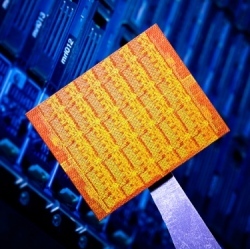
Researchers at the University of Notre Dame and Pennsylvania State University have announced breakthroughs in the development of tunneling field effect transistors (TFETs), which deliver performance comparable to today’s transistors, but with much greater energy efficiency by taking advantage of the ability of electrons to “tunnel” through solids.
The principle of quantum mechanical tunneling is already used for data storage devices.
While TFETs don’t yet have the energy efficiency of current transistors, Notre Dame has demonstrated record improvements in tunnel transistor drive current, and more advances are expected in the coming year. ”Our developments are based on finding the right combination of semiconductor materials with which to build these devices,” says Suman Datta, professor of electrical engineering at Penn State University.
“If we’re successful, the impact will be significant in terms of low power integrated circuits. These, in turn, raise the possibility of self-powered circuits which, in conjunction with energy harvesting devices, could enable active health monitoring, ambient intelligence, and implantable medical devices.”
Another benefit of tunneling transistors is that using them to replace existing technology wouldn’t require a wholesale change in the semiconductor industry. Much of the existing circuit design and manufacturing infrastructure would remain the same.
